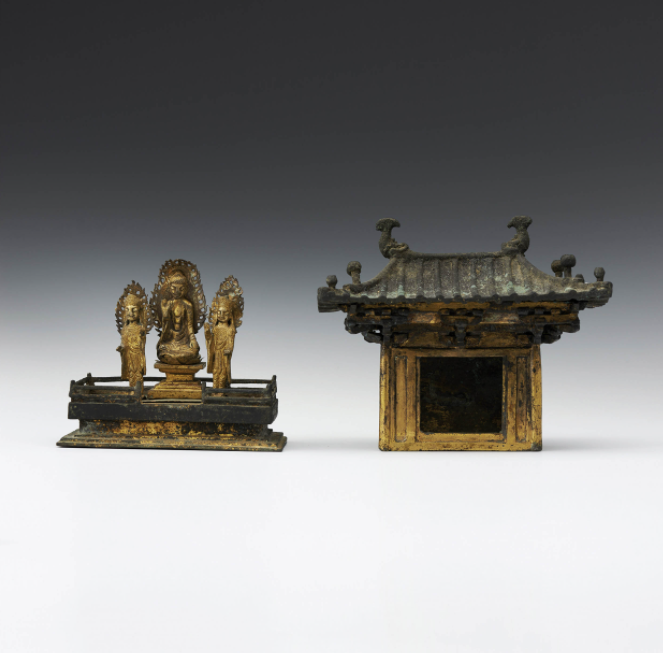
The highly anticipated auction of two state-designated Korean national treasures owned by a private museum ended without a single bid for either work.
The centuries-old artifacts, from the collection of Kansong Art Museum, were among the highlights of K Auction’s January 27 sale.
The museum, which has been struggling with financial difficulties, has been offloading its collection to raise money, and hoped to pull in between 28 and 40 billion won ($23.6 million to $33.7 million) for two items.
But the sale failed to generate any interest, and the precious lots were bought in shortly after they were unveiled, having received no bids.
Bidding for the Portable Shrine of Gilt-bronze Buddha Triad, dated from between the 11th and 12th centuries, began at 2.7 billion won ($2.35 million). The Gilt-bronze Standing Buddha Triad with Inscription of Gyemi Year, dated to the 6th century, opened at 3.2 billion won ($2.7 million).
Gilt-bronze Standing Buddha Triad with Inscription of Gyemi Year. Courtesy of K Auction.
The much-hyped lots were met with a cold response in the salesroom, and the auctioneer quickly moved on to the final lots of the sale, which featured a mix of Modern and contemporary art, as well as traditional Korean artworks.
Initially, the lots were expected to get bids from two decentralized autonomous organizations (DAOs), National Treasure DAO and HeritageDAO, which were set up earlier this month in the hopes of buying the treasures and keeping them on public view.
But both National Treasure DAO and HeritageDAO failed to raise enough cash to fund any bidding.
The works will be returned to the Kansong Art and Culture Foundation, which runs the museum, according to local media reports.
In 2020, the Kansong Art Museum failed to sell two other artifacts at auction, and they ended up in the collection of the National Museum of Korea for a total of 3 billion won ($2.5 million).
State-designated cultural artifacts are barred from being traded outside South Korea, but they can be sold within the country so long as the sale is reported to the Cultural Heritage Administration in advance.